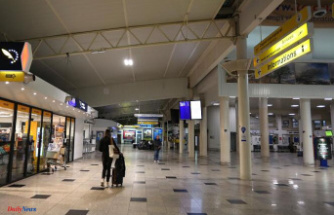Even if new relief packages are already being put together diligently, the payment of the 300 euro energy price flat rate is now pending. Contrary to the actual announcement, however, not all employees subject to income tax could benefit from this. You can read everything about EPP here.
The relief decided by the federal government due to the sharp rise in energy and fuel prices pays off for employees who are subject to income tax, among other things in the form of the energy price flat rate (EPP) of 300 euros. This will be paid out with the pay slip in the coming month to all persons who are in an employment relationship subject to compulsory insurance as of September 1st.
But shortly before the transfer, there is again unrest in the matter. The Federal Working Group for Debt Counseling doubts that the EPP will reach over-indebted consumers. Because the money may be seizable. But one after anonther.
First of all, who gets the energy price flat rate?
All employees subject to income tax (tax brackets 1-5) are paid a one-off energy price flat rate of 300 euros. According to the Federal Ministry of Labor (BMAS), according to the government draft, "all marginally employed people this year will also benefit from the energy price flat rate - both the 450-euro mini-jobbers and short-term (marginal) employees - regardless of the exact type of taxation."
How long does the activity have to be carried out?
Taxpayers must have qualifying income in 2022. The activity does not have to be performed at a specific point in time or for a minimum duration.
Who has to worry about the money anyway?
According to the Federal Working Group on Debt Counseling (BAG-SB), the EPP could be attached to people who are in debt. Because, according to the BAG-SB, there was a failure to clearly regulate the non-seizability of the service in the law. Because as soon as there is a wage or account garnishment or someone is in bankruptcy, it takes a lot of effort to get the lump sum paid out. "It seems to us that the reality of life for almost seven million over-indebted people has once again been completely forgotten in the legislative process," says the working group's press release. According to the association, almost seven million people in Germany are over-indebted.
The Federal Ministry of Finance (BMF) confirmed to the "Bild-Zeitung": "The courts ultimately decide whether the energy price flat rate can be seized." Which is a bit confusing, because the BMF says: "The EPP is not covered by a garnishment of wages, since it is not a question of 'wage' or 'remuneration' in terms of labor and social security law. The tax classification of the EPP as wages is to that extent irrelevant."
According to the BAG-SB, it is unclear whether the wage programs work according to this clarification or whether they insist on a legal regulation. And if it is not the wages but the account that is seized, the clarification from the Federal Ministry of Finance is by no means sufficient.
The association provides corresponding sample letters and a counseling center search on its website www.meine- faults.de in order to make it as easy as possible for people to receive the lump sum. It remains to be seen to what extent the courts will grant the release applications.
Who doesn't get the support anyway?
non-employed. This includes most retirees. Likewise, trainees receive no pay and students receive no money.
Does the EPP have to be applied for?
no The energy price flat rate is paid out by the employer with the payslip. The self-employed receive an advance in the form of a one-off reduction in their income tax prepayment.
When will the money be transferred?
It is regulated by law that the entitlement to the EPP arises on September 1, 2022. However, the date does not mark a deadline for the eligibility requirements. Anyone who meets the eligibility requirements at any time during 2022 is eligible for the payment. Employers must pay the 300 euros to all employees who are employed by them on September 1st. There can therefore be no double payments in the event of a change of employer.
Is the money subject to income tax?
And.
Are social security contributions also due?
No, according to the Federal Ministry of Labor and Social Affairs, no social security contributions are due on the flat-rate energy price, since this is not wages in the sense of social security law.
What's left?
According to calculations by the taxpayers' association, a married employee with a child, tax class 4 and an annual salary of 45,000 euros would receive an energy price flat rate of 216.33 euros. With an annual salary of 15,000 euros, the same employee would receive 248.83 euros. If he is registered in tax class 3, he remains under the basic allowance, so he does not have to pay any taxes and is paid the full lump sum.
Less is left over for higher earners. According to the calculations of the association, a single person with tax class 1 and an annual salary of 72,000 euros will end up with a net subsidy of 181.80 euros. The top tax rate applies to him, and the flat rate also means that a solidarity surcharge applies again. A married employee with one child, tax class 4 and an annual salary of EUR 72,000 would receive a flat rate of EUR 184.34.
How much does the grant cost the state?
The Ministry of Finance expects a total of around 13.8 billion euros. Since the one-off payment is taxable, the bottom line is costs of around 10.4 billion euros.
Is there criticism?
Naturally. For example, from the Taxpayers' Union. He complains that there would only be real relief if the energy price flat rate were tax-free. Pensioners and the self-employed did not receive any real subsidy either.
(This article was first published on Monday, August 29, 2022.)












